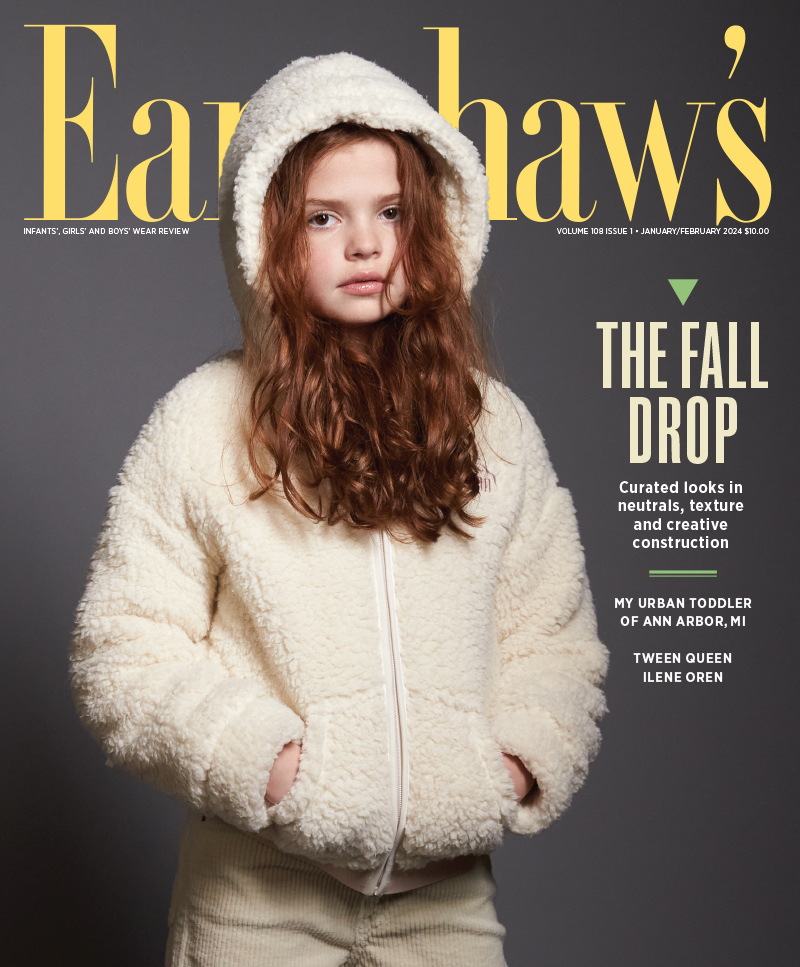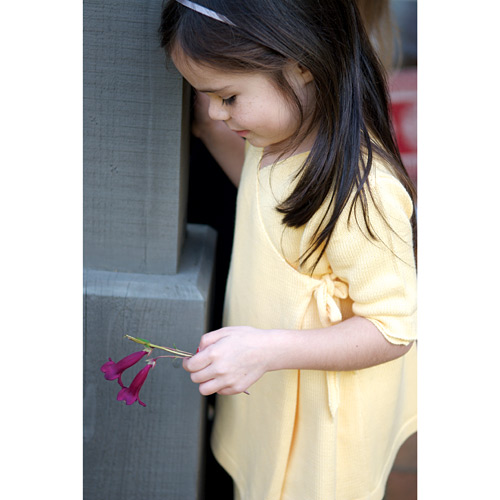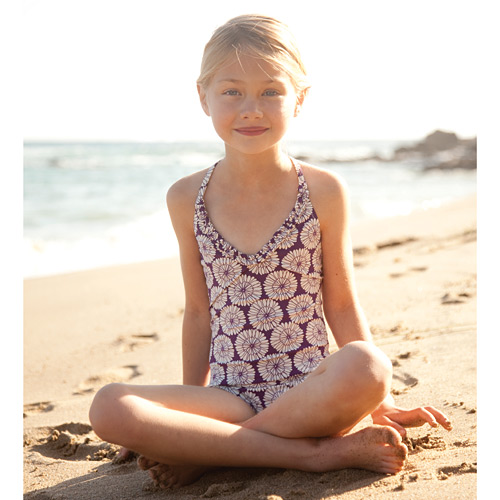What do you get when an American and an English designer—both living in Israel and whose backgrounds collectively encompass France, Sweden and Hong Kong—come together to create a swim collection for girls? Judging by Stella Cove’s refined swimwear designs that translate across continents, the answer is a truly global children’s brand. Although the collection is […]
- Petit Couture
- Stella Cove
What do you get when an American and an English designer—both living in Israel and whose backgrounds collectively encompass France, Sweden and Hong Kong—come together to create a swim collection for girls? Judging by Stella Cove’s refined swimwear designs that translate across continents, the answer is a truly global children’s brand.
Although the collection is now available at 200 stores in 20 different countries, co-founders Amber Keinan and Pia Lofdahl note that they didn’t set out to conquer international markets when they created Stella Cove—the pair simply spotted a scarcity of high-quality bathing suits for kids. “You couldn’t find swimwear that would last through a season or two,” Keinan explains. “We saw a need in the market for luxury swimwear for girls, and we thought it would be really sweet to do matching swimwear for mothers and daughters.”
That initial concept explains the brand’s sophisticated aesthetic. Rather than designing an array of trendy silhouettes, Keinan and Lofdahl wanted to create classic pieces that would withstand trends for both mom and daughter, and decided to focus on creating their own unique prints. “We don’t do solid color bathing suits, so we really wanted to do things that were timeless. You can keep them; they can be passed from kid to kid,” Keinan says. The pair works with graphic artists around the globe to develop their own prints, using unexpected color combinations
and eye-catching patterns to put a modern touch on classic swimwear elements, like stars, palm trees and floral prints. In addition, Keinan and Lofdahl incorporate unexpected themes, like coffee beans, ducks and elephants, into the collection every year. “We really wanted prints and ideas that were appropriate for the different age groups,” Keinan explains.
The success of the girls’ and women’s swim lines inspired Keinan and Lofdahl to branch into boys’ shorts, cotton accessories, rash guards and now a teen collection. “We found a need for a teen line that was not too adult, not too boyish and not too rock star,” says Keinan of the collection, which launches in Spring ’12. “The brands out there were either very trendy or too sporty or too provocative, and we didn’t want that.” Much like the rest of the Stella Cove collection, the pair plans to keep the teen silhouettes simple with no extra fabric, ruffles, flowers or padding. “The focus is really on the quality, the detail of the print and the fabric—and not everything else.”
It’s an aesthetic they believe appeals to parents everywhere, and why the brand recently began tackling its stateside and overseas campaign concurrently. “We really just wanted to expand globally without focusing on one particular target market,” Keinan says. It’s a strategy that has worked for the well-traveled pair. “Between the two of us we’ve covered the entire world,” Keinan says.
Fair Fashion
Petit Couture builds upon modern design and fair-trade practices.
“Jonathan Adler with a Bohemian flair” is how Rebecca Kaykas-Wolff describes her design aesthetic, and it’s an apt assessment of the modern yet playful frocks she creates for her 2-year-old Portland-based brand, Petit Couture. Featuring everything from bold geometric prints to the brand’s signature wide-eyed owl graphic, her collection of clothes for babies, boys and girls is sophisticated and whimsical, with a dash of West Coast simplicity.
Although the collection’s designs inspire, it’s the message behind the medium that truly connects with her customers, Kaykas-Wolff says. “The idea behind the brand is that it is fair-trade produced,” she explains. Most of the collection, including the layettes, dresses, leggings, tunics and screen-prints, are produced in Portland, OR. In addition to providing a boost to the local economy, Kaykas-Wolff says she knew domestic manufacturing would be a better bet in terms of time, cost and quality. “When you’re small, it’s really challenging to manage oversight—and it’s cost prohibitive, especially when you’re managing artisan, boutique runs,” she explains. Yet while the quality and turnaround time of her local team was impressive, the designer knew it would be difficult to find a domestic manufacturer who could produce the brand’s delicate sweater knits with the “richer texture and sophistication” she was seeking. So in fitting with the brand’s fair-trade ethos, Kaykas-Wolff worked with a friend to employ a women’s co-op in Peru to expertly craft the line’s handmade sweaters.
More than just the brand’s fair trade message resonates with parents, Kaykas-Wolff notes, pointing to the collection’s mix-and-match versatility and washable fabrics. “You’ve got your everyday dress that’s wearable and got movement to it, and it can be thrown over leggings or worn on its own,” she says. “Even though the pieces are really fun and can be dressed up or down, it’s very much a wash and wear collection.” It is a message she knew would connect with busy moms everywhere, so the tech-savvy mother of two and former digital executive took to the web to tell her story. “I utilized Facebook and Twitter heavily to grow the brand and leveraged the mompreneur and mom blogger outlets to start building the pieces little by little and slowly got into some key showrooms,” she explains. Now carried in boutiques scattered across the U.S., Australia and Malaysia, Kaykas-Wolff is still somewhat dazed by the brand’s quick growth. “Lo and behold I was able to fashion something that other people liked and it picked up a nice little following.”—Audrey Goodson





Leave a Comment: